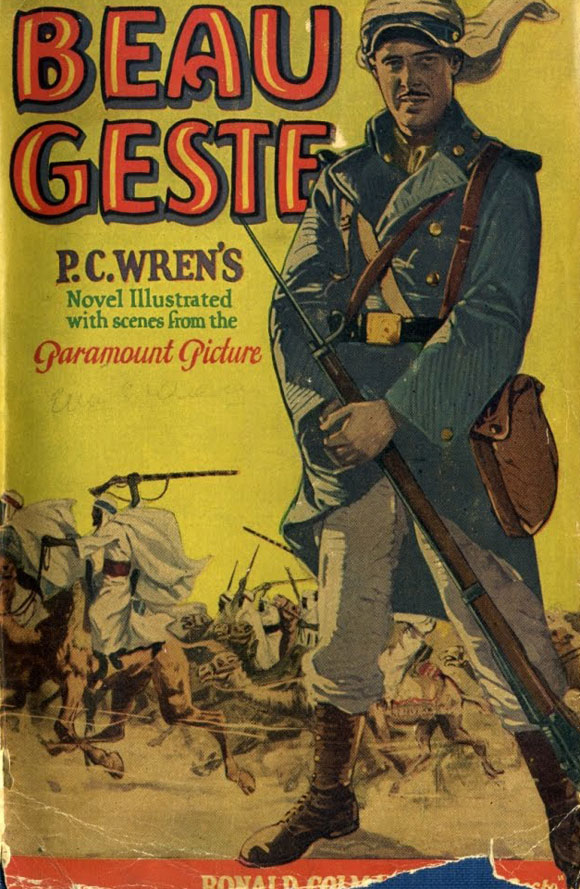Book Review: Beau Geste by P.C. Wren
Fort Zinderneuf is silent now, manned by the dead. Each of its defenders shot by Tuareg raiders and propped up on the walls to make it appear their numbers were undiminished. In the finest tradition of the French Foreign Legion, they have fought to the last man. But there is one exception. A man, impaled by a bayonet and holding in his hand a confession to stealing the fabled “Blue Water”, signed by a man who is clearly not the corpse himself. What are we to make of this mystery?

As I have mentioned in previous reviews regarding the Legion Etrangere, P.C. Wren’s novel is the best known fictional story of the French Foreign Legion. It was enormously influential on other portrayals of the mercenary unit.
It begins by setting up the mystery of the fort manned by the dead during a lengthy conversation between British official George Lawrence and French army officer Major Henry de Beaujolais as they travel out of Africa together. It was Beaujolais who discovered the unnerving incident, but Lawrence who knows Lady Brandon, to whom the sapphire Blue Water belongs. Lawrence visits Lady Brandon (whom he has long loved, despite her arranged marriage to the cruel Lord Brandon) but she sheds no light on the story.
After this lengthy prologue, we flash back to the childhood of the Geste brothers, Beau, Digby and John (the last being the narrator.) They are orphans under the guardianship of Lady Brandon, along with a few other children. They are all present at the apparent theft of the Blue Water, and all come under suspicion. One by one, the brothers decide to run off and join the French Foreign Legion to divert suspicion from each other.
We follow the brothers through their induction into the Legion, meeting various characters both heroic and villainous, training to become soldiers, and then assignment.
Eventually, we learn what really happened at Zinderneuf, but the story isn’t over. The surviving characters must make their way out of French territory if they want to continue to survive, and it’s by no means an easy task.
This is not a novel for the impatient reader. There’s a lengthy prologue, then several chapters of backstory before our protagonists even join the Legion, and after the big moment there’s still a long slog to the end. For those just interested in “the good bits” I recommend the movie.
Good: The initial mystery is set up well, creating intrigue. The characters are sharply drawn, and the brothers showing a peculiarly English sense of honor to each other and their benefactor. Once the fighting starts in earnest, the tension builds as the Legionnaires drop like flies.
There’s an amusing bit in the last section where the narration refers to the then standard adventure trope of finding a lost white civilization in the heart of Africa, and says “nope, it’s a lost city inhabited by local people.”
Less good: The novel could stand to be a good third shorter than it is, as the establishment of the mystery is deliberately drawn out and other sections are padded.
There’s a lot of ethnic stereotyping going on, which works to the benefit of the white American Legionnaires, but not so much to any other group, and especially comes off as anti-Semitic.
The very ending is a bit odd, with one character given an ignominious offhand death, while another is handed a happy ending on a platter.
Recommended to fans of French Foreign Legion tales and brotherhood who are willing to put up with the pacing issues.
And now, let’s see the movie trailer!

